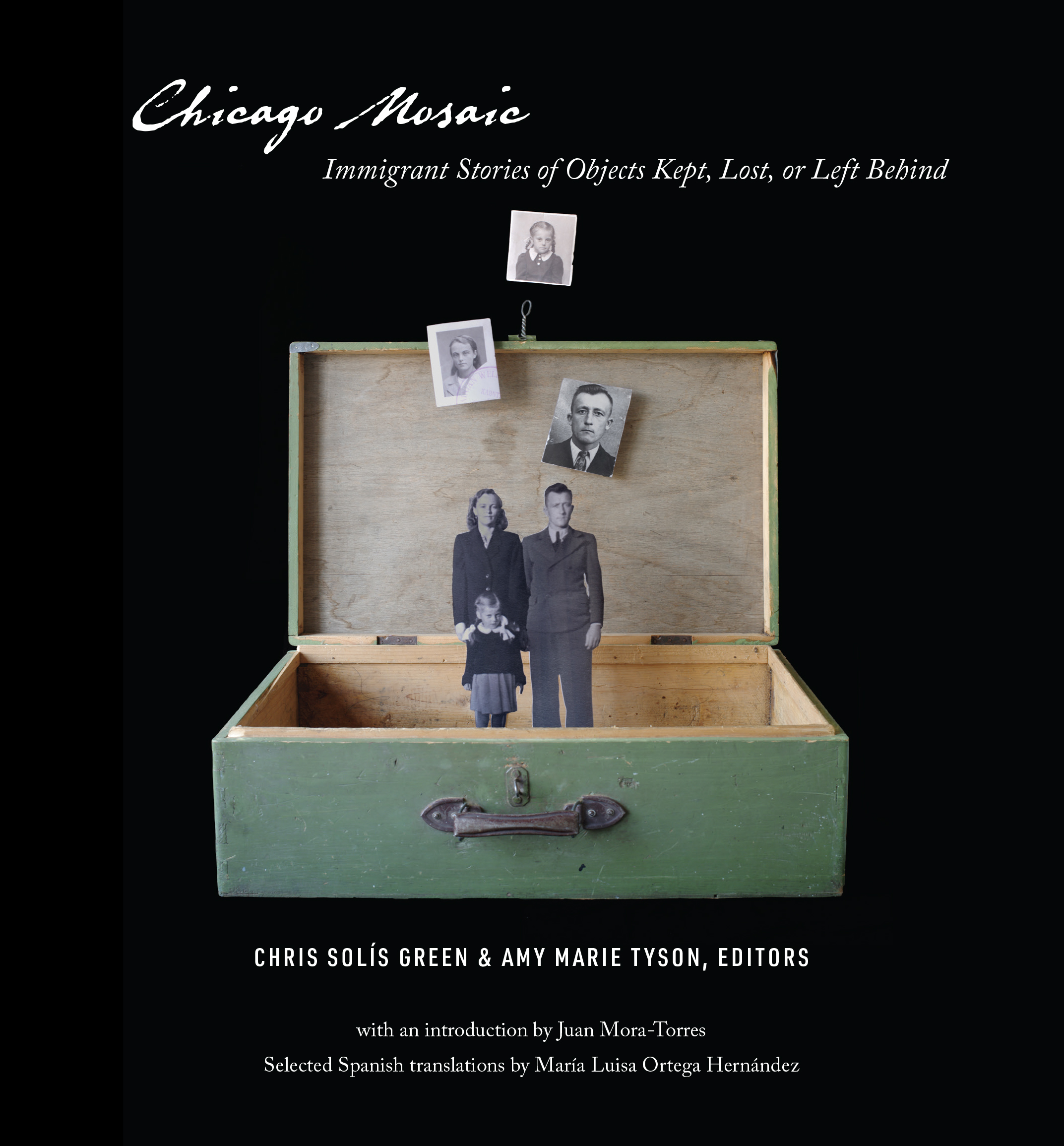
The front cover of the Chicago Mosaic book. (Photo by Alexa Frangos)
![A drawing of a man's chest wearing a military dog tag with the numbers [] on it, the whole drawing is painted with a blue watercolor.](/newsline/sections/campus-and-community/PublishingImages/2023-24/Juan_dogtag_drawing.jpg)
Juan Ugarte's object: His grandfather's military dog tag. (Photo by Azize Harvey)
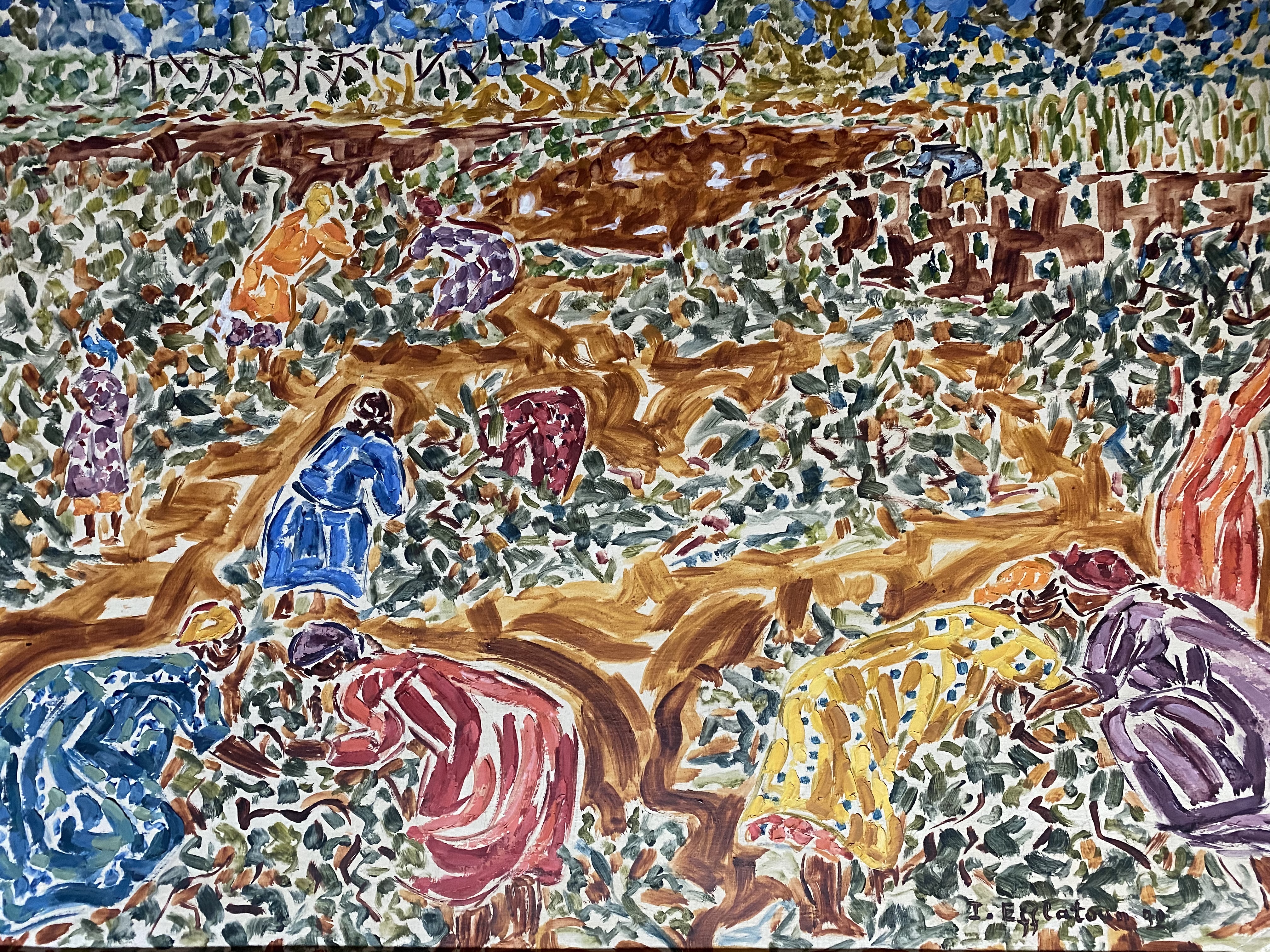
Salma Ghanem's object: A painting by Egyptian artist and activist Inji Aflatoun. (Photo by Salma Ghanem)
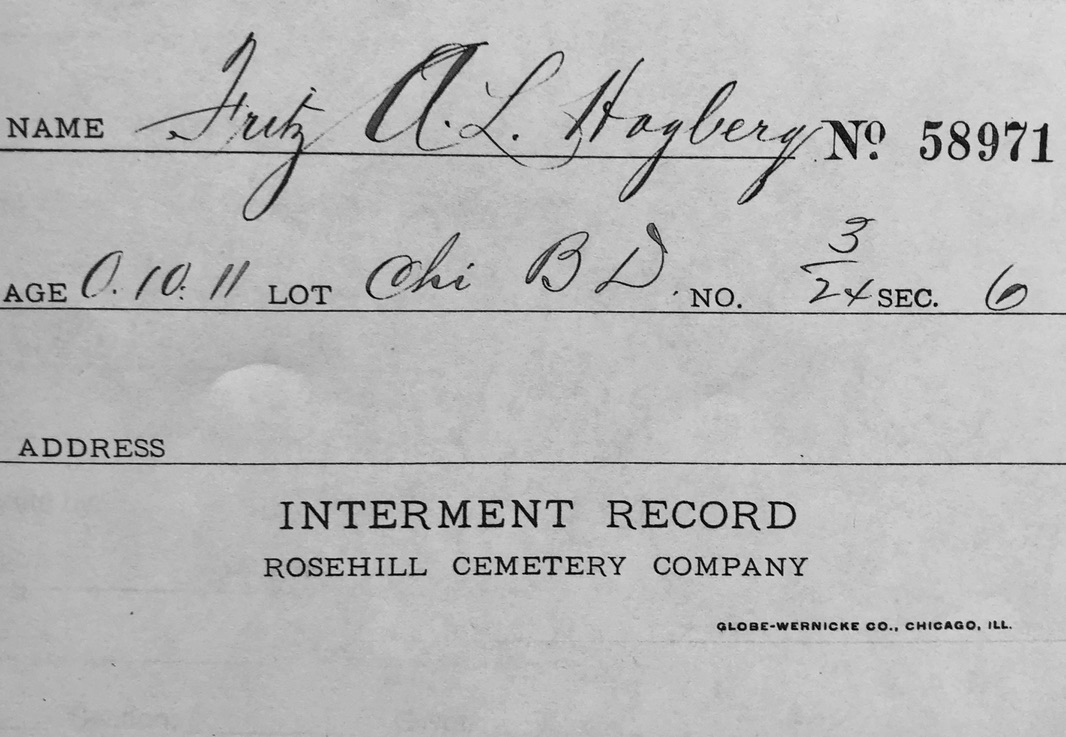
Amy Marie Tyson's object: An internment record from Rosehill Cemetary Company (Photo by Amy Marie Tyson)
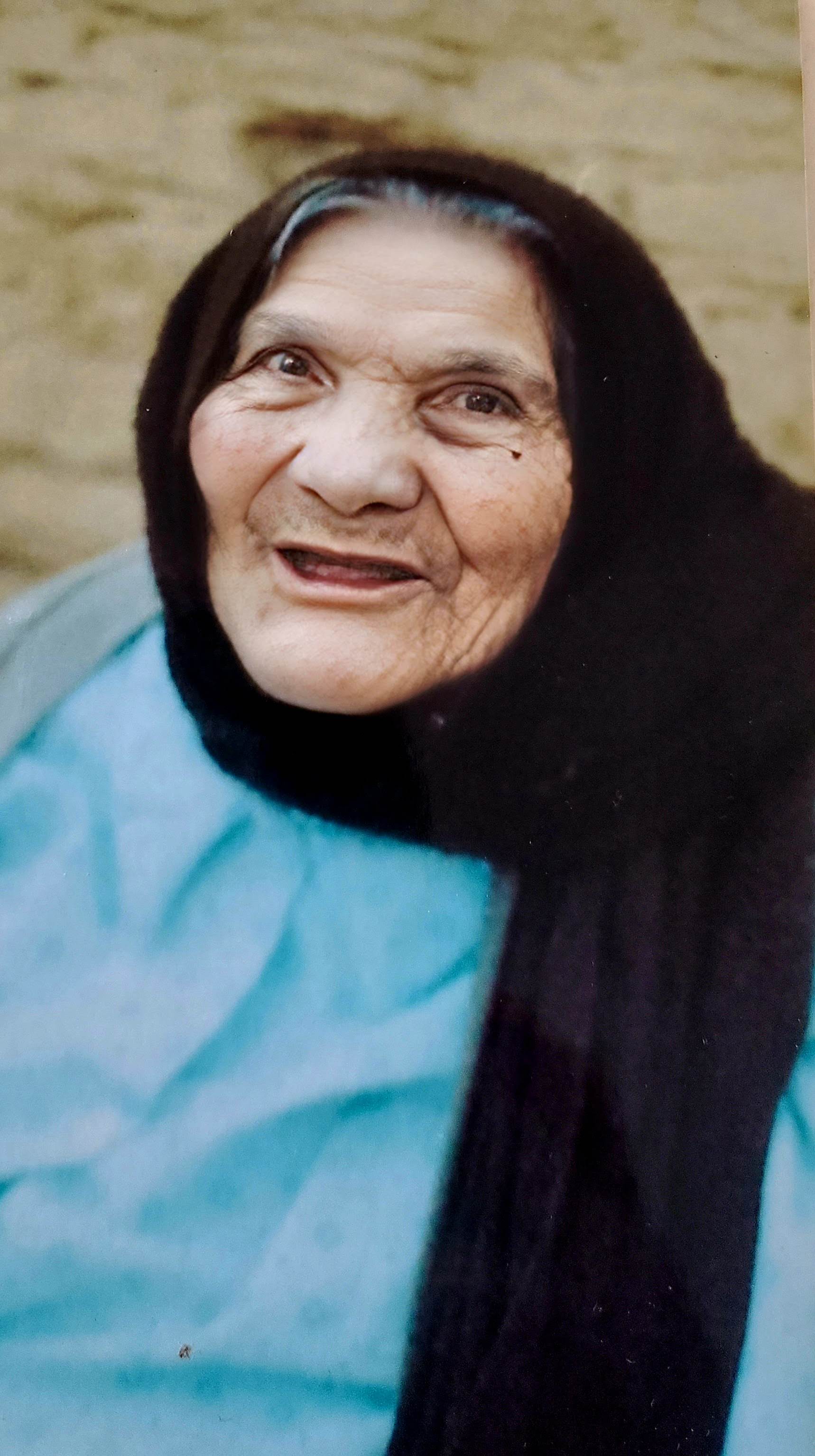
Mónica Haydeé Ramos's object: Her grandmother's rebozos, her grandmother is pictured here wearing a black rebozo (Photo by Mónica Haydeé Ramos)
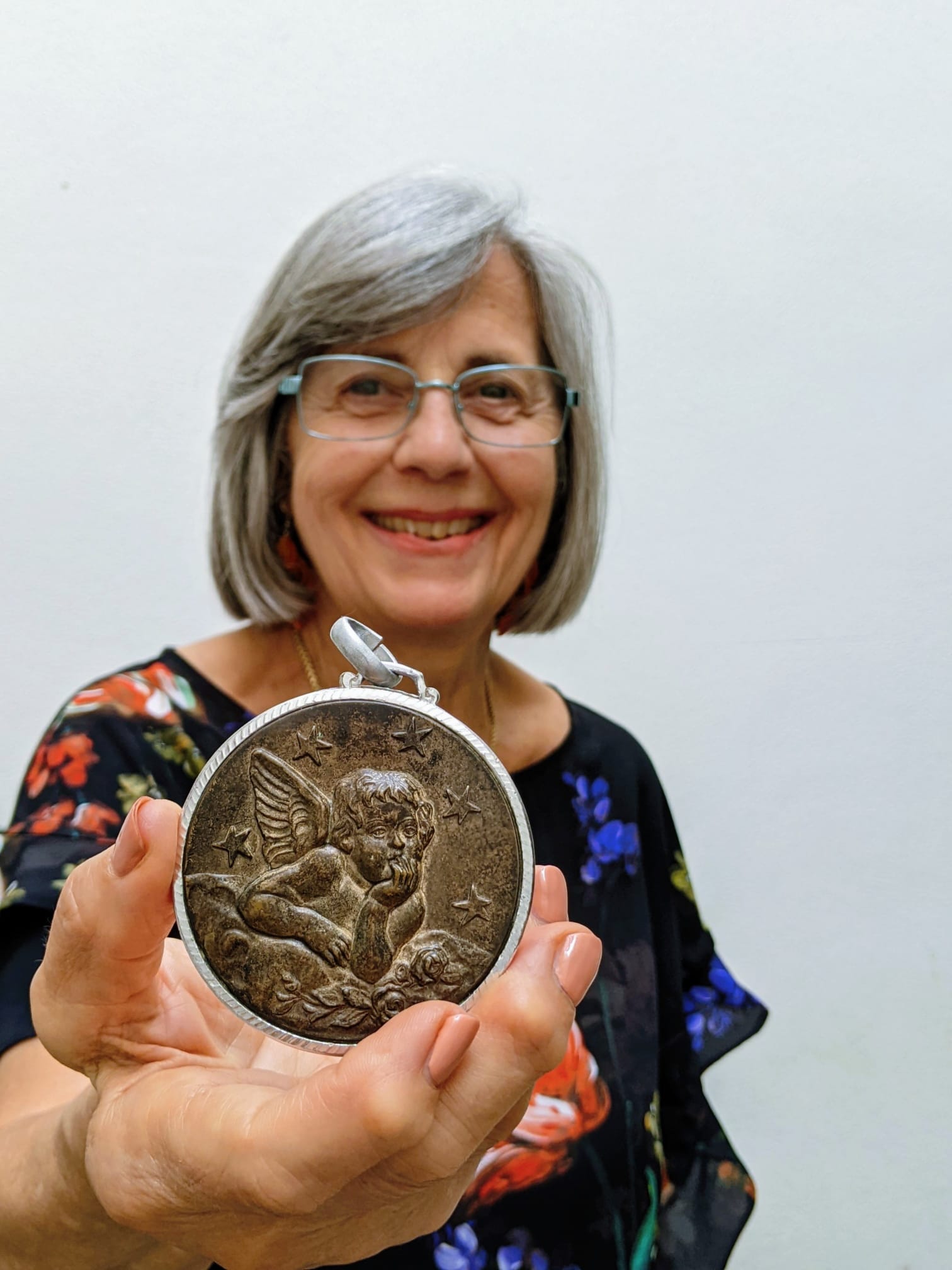
María Luisa Ortega Hernandez's object: A crib medallion from her infancy. (Photo by María Luisa Ortega Hernandez)
Baby shoes, a silk scarf, custom arracada earrings, a school transcript and a mother’s singing voice. For immigrants who have found their way to Chicago from all around the world, these are examples of objects that have shaped their lives and served as memories of their homelands or the journey that brought them to America.
A new book from DePaul’s Big Shoulders Books, “Chicago Mosaic,” shares immigrants’ first-person accounts of the stories tied to objects that were kept, lost or left behind. The books’ editors set out to highlight the humanity of a diverse group of immigrants, amid an influx of migrants arriving in Chicago and reports of migrant children working dangerous factory jobs.
“Immigration is always in the news now,” says co-editor Chris Solís Green, a distinguished writer in residence at DePaul and one of the founders of Big Shoulders Books. “Immigrants are often referred to as ‘aliens’ or ‘illegal’ immigrants … like they’re not human. People conveniently forget or overlook the fact that tens of millions of U.S. citizens are immigrants or come from descendants who were immigrants."
Fellow co-editor Amy Marie Tyson, an associate professor of history, also finds a connection in the book with Chicago’s history.
“The simple theme that unites the book is that Chicago is a city built by immigrants. It works perfectly for the metaphor of big shoulders that the press is founded on,” she says.
Collecting an anthology of immigration
For years, Big Shoulders Books has been releasing work that engages with the Chicago community and amplifies voices that aren’t normally heard. The concept for “Chicago Mosaic” bloomed out of a collaboration between Solís Green and Tyson.
“I often work with material culture, and Chris is a poet and a storyteller,” Tyson says. “We thought, ‘what if we used objects as the organizing principle for people to talk about their story?’ and we just fell in love with the idea.”
Then came the long process of collecting stories from immigrants living in Chicago. Emails were sent through organizations and people were recruited by word of mouth; stories trickled in for over a year.
“It happened organically and slowly,” Solís Green says. “Contributors could submit written stories, or we interviewed them and created a narrative out of the interview. That helped some people feel more comfortable participating.”
Items kept, lost or left behind
Immigrants shared stories about a wide range of objects, from a large military sword to a small wooden jewelry box.
“I am drawn to the more unexpected, ordinary objects. They’re not all photographs, medallions or watches. Sometimes they’re very ordinary things that become a focus in someone’s experience,” Solís Green says.
Juan Ugarte, a 2023 DePaul graduate with a bachelor’s degree in English, a concentration in creative writing and a minor in history, submitted a touching story about a military dog tag gifted to him by his grandfather. Unfortunately, the dog tag was stolen.
“For me the story serves as a sort of obituary,” Ugarte says. “By the time of writing it, my grandfather and the tag were both long gone, but I was definitely still in mourning.”
Contributing to the anthology was liberating for Ugarte, helping him to resolve those feelings while also connecting to the other members of the Chicago community featured in the book.
Tyson, who contributed her own story in addition to editing the anthology, found that while the stories can be painful, there is healing to be found in sharing them with others.
“Sometimes the worst parts about being an immigrant are the stories we carry with us, but those shared pains can also be binding beyond cultures and creeds,” Ugarte says. “Getting to add my voice to the many other wonderful stories in this book makes Chicago feel less lonely for this Cuban guy.”
DePaul Provost Salma Ghanem also contributed a story about a painting that had hung in her childhood home in Egypt. When she spontaneously packed it as she prepared to leave Egypt with her daughter, she didn’t realize it was created by political activist
Inji Aflatoun.
“Even before I knew who had painted it, I had treasured that painting. It was the one item from my past that I had brought with me that connected me to my history, to my parents, to my childhood,” Ghanem wrote in the anthology.
To view the digital ebook or request a free print copy, visit the
Big Shoulders Books website.
Jade Walker is a student assistant of media relations and communications in University Communications.